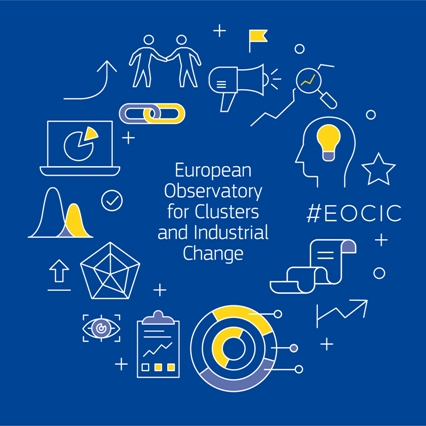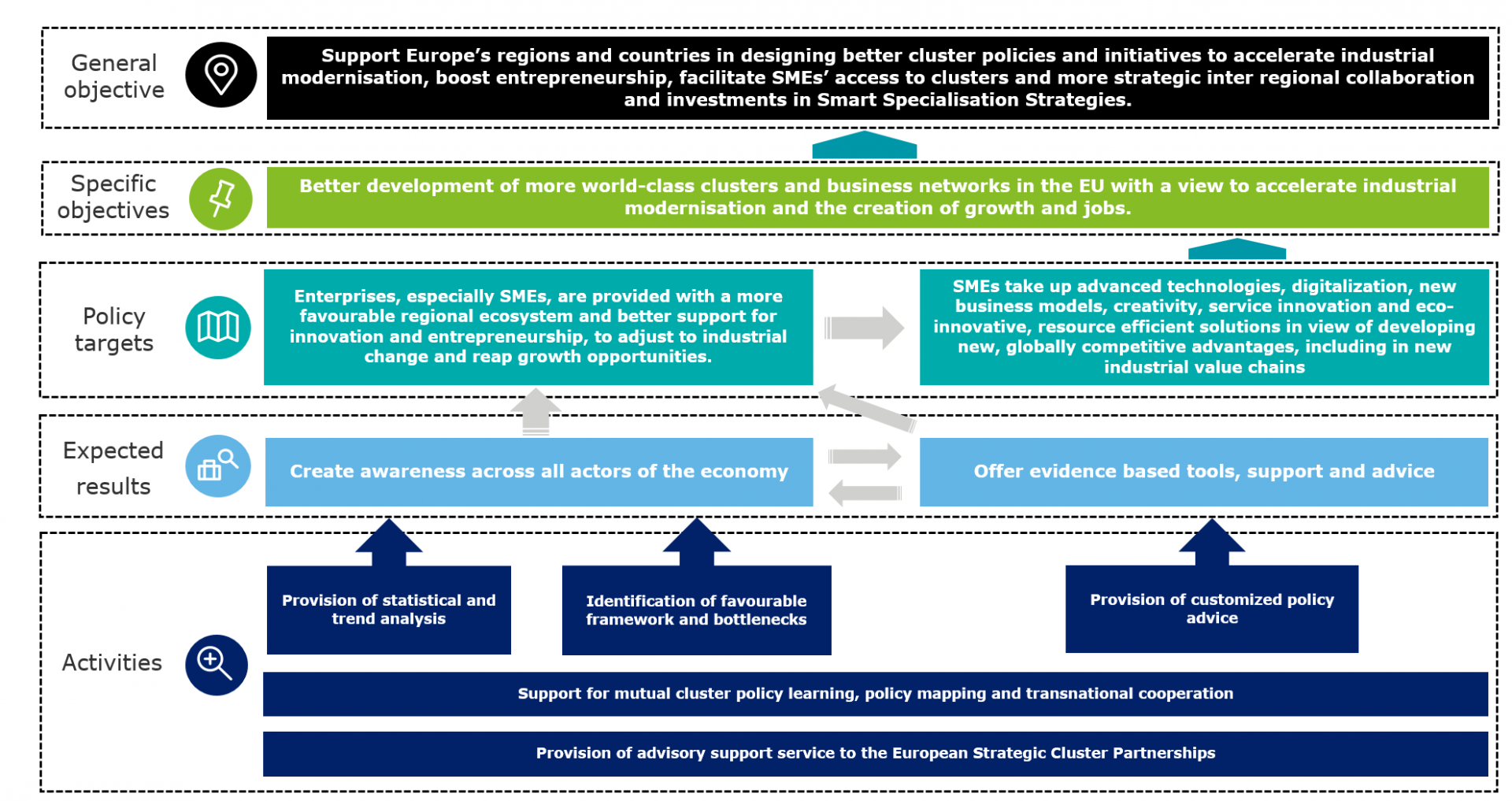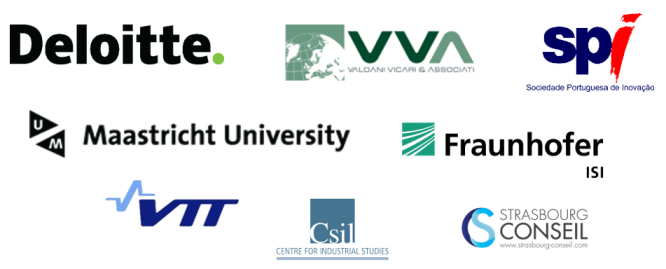
The European Observatory for Clusters and Industrial Change (#EOCIC) builds upon and brings together the work undertaken by the European Cluster Observatory and previous work of the European Service Innovation Centre, but with a stronger and wider focus on the role of industrial change. The new Observatory will not only look at service innovation but also at key enabling technologies, digitalisation, creativity and eco-innovative, resource-efficient solutions as the key drivers of industrial change. Likewise, wider indicators for industrial and entrepreneurship performance and how these are connected among each other and with cluster development will also be part of its scope.
The aim of EOCIC is to help Europe's regions and countries in designing better and more evidence-based cluster policies and initiatives. The Observatory supports:
- Industrial modernisation;
- Entrepreneurship in emerging industries with growth potential,
- SMEs' access to clusters and internationalisation activities and
- More strategic inter-regional collaboration and investments in the implementation of smart specialisation strategies.

Its vision is that enterprises, particularly SMEs, are provided with more favourable regional ecosystems and better support for innovation and entrepreneurship, in general, and adjusting to industrial change and reaping growth opportunities, in particular.
EOCIC, amongst other things:
- provides statistical and trend analysis of clusters (including value chains, gazelles, start-ups and scale-ups),
- identifies favourable framework conditions and bottlenecks for the development of clusters and industrial modernisation,
- provides customised policy advice to 12 selected regions with a specific problem or societal challenge, so they can become in the future a model for other regions with the same concerns,
- provides advisory support services to European Strategic Cluster Partnerships and
- supports mutual cluster policy learning and transnational cooperation.
Ultimately, the goal of the observatory is to promote the development of world-class clusters with competitive industrial value chains that cut across sectors (similar to the “Silicon Valleys" referred to in the White paper on the Future of Europe).
THE FIRST EOCIC NEWSLETTER IS OUT! Click here to discover an overview of the activities undertaken during the first year.
On 22 February 2018, representatives from 25 EU country ministries met in Brussels for the First European Cluster Policy Forum, which took place during the EU Industry days (22 and 23 February 2018). During the meeting, national representatives, cluster policy experts and Commission officials talked about designing and implementing effective cluster policies by scaling up existing good practices to enhance industrial change and growth. They learned about the latest development within the different European cluster initiatives and shared good practices to promote mutual cluster policy learning.
The video below provides an outlook on the interactive event and its fruitful discussions.
This was the first of a series of events. The Second European Cluster Policy Forum took place on 26 April 2018, and focused on cluster labelling, mobility schemes for cluster managers and State aid issues related to cluster policy. Click here to read more about the discussions around the themes addressed. The next European Cluster Policy Forum will take place in Brussels on 15 November 2018 and will focus on the topic of entrepreneurship.
THE SECOND EOCIC NEWSLETTER IS OUT! Click here to discover the latest achievements.
Have a look at THE THIRD EOCIC NEWSLETTER here to learn about the outcomes of flagship events in 2019 and the deliverables produced by EOCIC such as the Cluster Mapping Tool, the Summary Report on Policy Lessons learnt and the Smart Guide for European Strategic Cluster Partnerships.
THE FOURTH AND LAST EDITION OF THE EOCIC NEWSLETTER is now available here !
These tasks are implemented by the Consortium headed by Deloitte Consulting and Advisory with Maastricht University MERIT, Fraunhofer ISI, Valdinini Vicari & Associati S.r.l. (VVA), Centro Studi Industria Leggera (CSIL), Technical Research Centre of Finland (VTT), Sociedade Portuguesa de Inovacao (SPI) and Strasbourg Conseil (SC).
